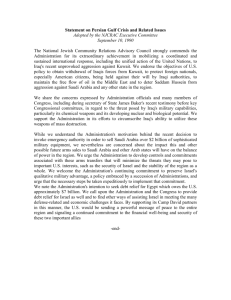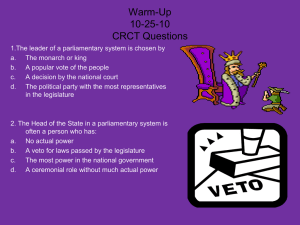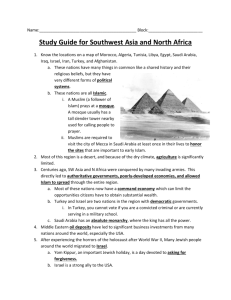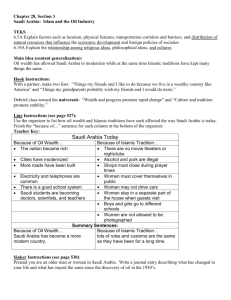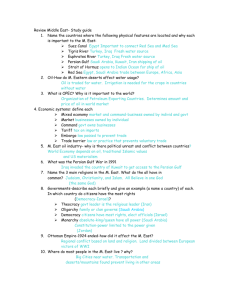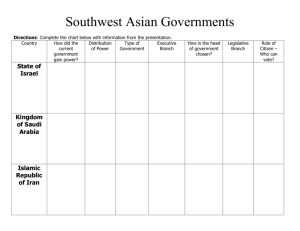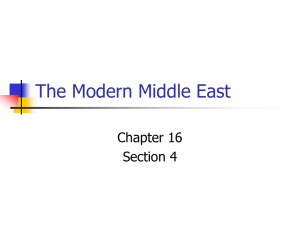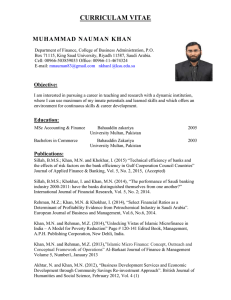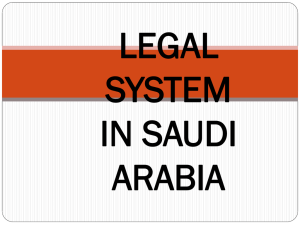graphic organizer
advertisement
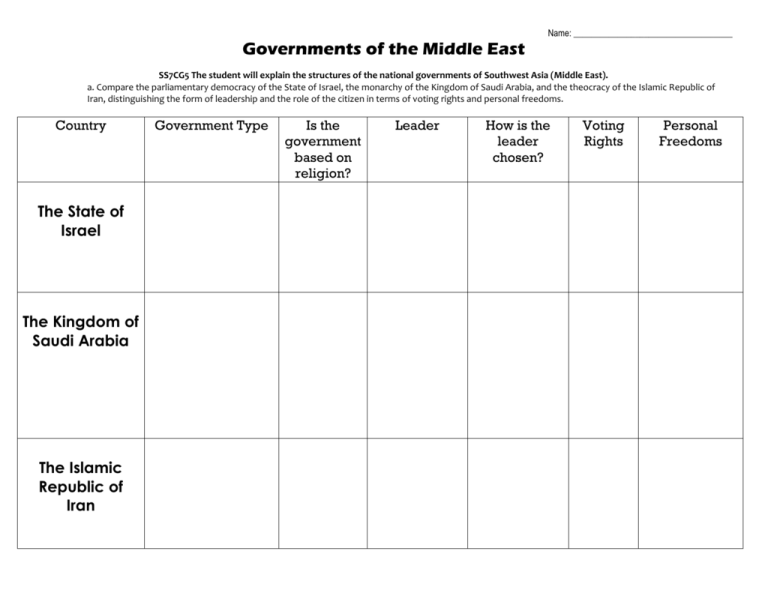
Name: ____________________________________ Governments of the Middle East SS7CG5 The student will explain the structures of the national governments of Southwest Asia (Middle East). a. Compare the parliamentary democracy of the State of Israel, the monarchy of the Kingdom of Saudi Arabia, and the theocracy of the Islamic Republic of Iran, distinguishing the form of leadership and the role of the citizen in terms of voting rights and personal freedoms. Country The State of Israel The Kingdom of Saudi Arabia The Islamic Republic of Iran Government Type Is the government based on religion? Leader How is the leader chosen? Voting Rights Personal Freedoms KEY Governments of the Middle East SS7CG5 The student will explain the structures of the national governments of Southwest Asia (Middle East). a. Compare the parliamentary democracy of the State of Israel, the monarchy of the Kingdom of Saudi Arabia, and the theocracy of the Islamic Republic of Iran, distinguishing the form of leadership and the role of the citizen in terms of voting rights and personal freedoms. Country The State of Israel Government Type Parliamentary Democracy Is the government based on religion? No Leader Prime Minister How is the leader chosen? Voting Rights Personal Freedoms Citizens elect members of the Knesset (Israel’s legislature) Prime Minister is then picked from the majority party in the Knesset Citizens 18 and older Freedom of Press Freedom of Religion Freedom of Speech Few personal The Kingdom of Saudi Arabia Monarchy Yes (Islam) King (King is also considered the religious official of Saudi Arabia) King inherits the leadership role. (There is a newly established council whose responsibilities include selecting a successor from the Saudi royal family.) Legislature: 1/3rd elected by voters, 2/3rd appointed by King Men 21 and older, few to zero elections are held freedoms. Not allowed to speak out against their government, and have limited human rights. Religious police who roam the streets to make sure that Saudi Arabians follow strict codes of behavior and dress outlined by Islamic law. The Islamic Republic of Iran Theocracy Yes Supreme Leader (Islam) President Supreme Leader chosen by Assembly of Experts and rules for life. President and legislature are elected by citizens but not as powerful as Supreme Leader Citizens 18 and older Do not have many personal freedoms. They do have the freedom of press as long as it is not damaging to the principles of Islam. Women have fewer rights than men.

